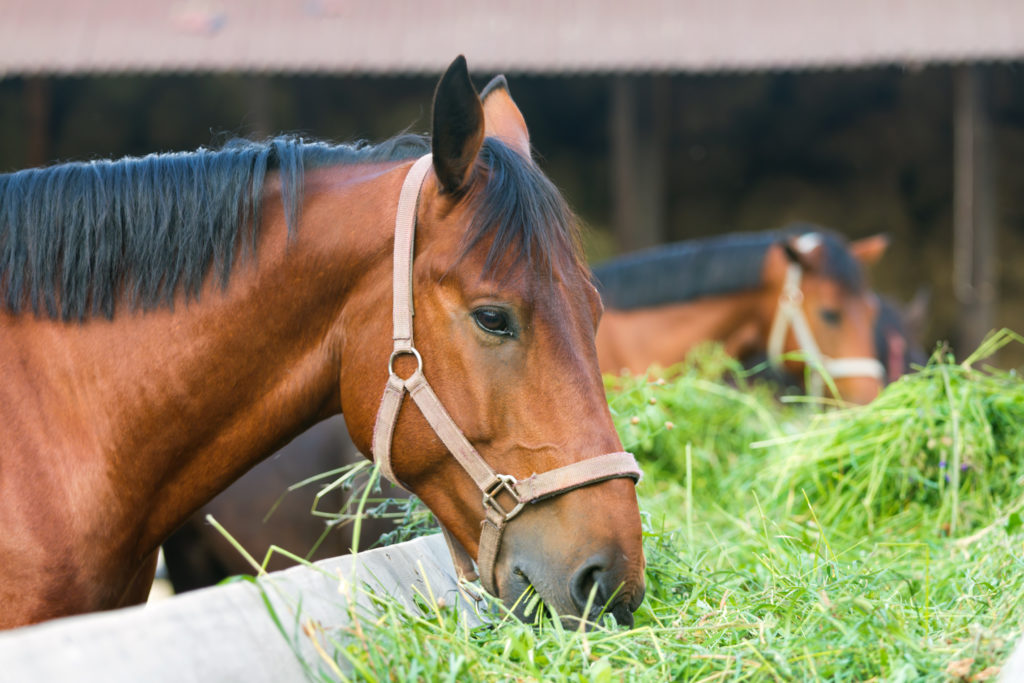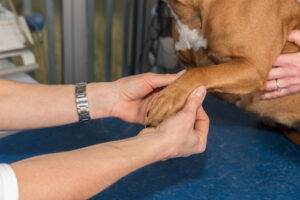It is believed that between 50-90% of adult horses and 25-50% of foals may have gastric ulcers. In adults ulcers are more common in athletes, particularly racehorses and show horses; while in foals those that may be sick or are orphans and are fed less frequently than when they have access to the dam are at a higher risk for developing ulcers.
Why are ulcers so common in horses?
Athletes are usually fed large meals two to three times daily and stalled at least part of the day for management purposes or because of weather/bugs/etc. This management style may lead to ulcers for several reasons; a horse’s stomach is smaller than most other species and is designed to have an almost continuous intake of forage. Constant intake of forage helps to neutralize the acid that the stomach is continuously producing. Mechanical aspects of exercise can cause enough pressure in the abdomen such that parts of the stomach can be exposed to acid for prolonged periods of time. Transportation and chronic administration of NSAIDs such as bute or banamine also contribute to gastric ulcers.
What signs might a horse show if they have gastric ulcers?
The clinical signs associated with gastric ulcers can be quite extensive and include:
Poor appetite
Attitude changes
Not performing well
Intermittent colic
Grinding teeth
Acting “cinchy”
Weight loss
Loose manure
And many others
How will we diagnose ulcers?
The only way that we can diagnose gastric ulcers definitively is by performing a gastroscopy, which involves passing an endoscope into the horse’s stomach and evaluating the stomachs lining. This procedure is not invasive and is relatively easily done.
Preventing and treating ulcers
It is unlikely that the majority of us will stop riding, hauling and competing, but there are certainly steps that we can take to prevent ulcers. Free choice hay or pasture is a great way to buffer stomach acid. Reduce the amount of grain your horse is being fed and increase the forage if possible or break grain feedings into more small meals and increase the forage at each meal. Alfalfa can help reduce the risk of ulcers for those horses that may have it. Also try to limit the use of NSAIDS. There are several products on the market that may help to prevent gastric ulcers these include Purina Outlast and SmartPak SmartGut Ultra to name a few.
There is only one FDA approved treatment for gastric ulcers and that is Gastrogard, which you can get from your veterinarian after having your horse evaluated for ulcers.
In the coming weeks we will be posting articles on our Facebook page that will further delve into equine gastric ulcer syndrome.
Caitlin Hutcheson BVMS
More in depth information is available here:





